Search Results
Showing results 121 to 140 of 152
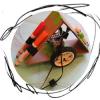
Push Pull Painter
Source Institutions
In this activity, learners create painting machines that can paint moving forwards and backwards.
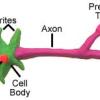
The Model Neuron
Source Institutions
In this activity, learners create a model of a neuron by using colored clay or play dough. Learners use diagrams to build the model and then label the parts on a piece of paper.
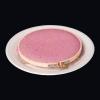
Make Recycled Paper
Source Institutions
Learners shred used paper, add water, and blend it into pulp. They then strain and roll the pulp out to make new paper.
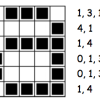
Colour by Numbers: Image Representation
Source Institutions
This activity shows learners how computers use numbers to represent pictures. A grid is used to represent the pixels (short for picture elements) of a computer screen.
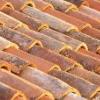
Waterproof that Roof!
Source Institutions
In this activity, learners explore how engineers have improved roofing designs and materials in order to protect the contents of buildings.

Arctic Sea Ice
Source Institutions
In this activity, learners explore how the area of Arctic sea ice has changed over recent years. First, learners graph the area of Arctic sea ice over time from 1979 to 2007.
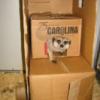
Animal House
Source Institutions
The goal of this activity is to design, build and test a house or toy for an animal.
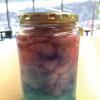
Nebula in a Jar
Source Institutions
In this activity, learners will build a model of a nebula using cotton balls and colored water. Astronomers photograph nebulas and add colors to provide information about the nebula's composition.

Secret Codon
Source Institutions
In this activity, "write" a secret message in genetic code as beads on a string.
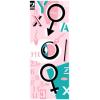
Genetics the Easy Way
Source Institutions
In this activity, learners make critters out of recyclables and apply the rules of mathematics to solve genetics problems.
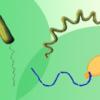
Balloon Bugs
Source Institutions
In this activity, learners make balloon models of disease-causing bacteria.
One-Cut Paper Stars
Source Institutions
Here's a very simple activity if you have paper and scissors: make one cut, unfold, and you have a beautiful star! A great way to learn about polygons and origami mathematics.
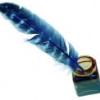
Get It Write
Source Institutions
In this activity, learners explore how pens have been engineered and re-engineered over time. Learners work as a team to develop a working pen out of everyday items.
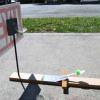
Parabola Basketball
Source Institutions
In this activity, learners build mini-basketball courts and explore the laws of physics. Learners discover that everything you throw or shoot on earth travels in a parabola.
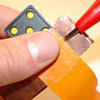
Smart Domino Tricks
Source Institutions
In this activity, you take regular dominoes, and turn them into conductive switches that can turn on a LEGO RCX block or Pico Cricket (micro controller). LEGO RCX block or Pico Cricket is required.
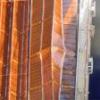
Folding Matters
Source Institutions
In this activity, learners explore how the process of folding has impacts on engineering and is evident in nature.
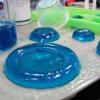
Casting and Molding
Source Institutions
This activity was designed for blind learners, but all types of learners can explore the process used to cast and mold molten metal, glass, and plastics.
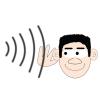
Sound Dampeners
Source Institutions
In this activity, learners will experiment with water- and air-filled balloons as a way of dampening sound before it reaches their ears.
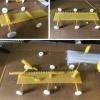
DIY Pasta Rover
Source Institutions
In this activity, learners design and build a NASA rover using raw pasta and candy with a limited imaginary budget.
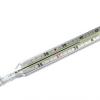
Plaster of Paris
Source Institutions
In this activity (page 6 of the PDF), learners will observe both a chemical and a physical change.
